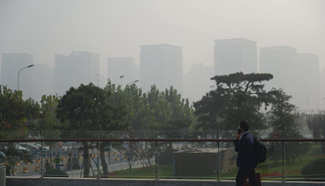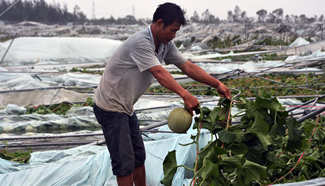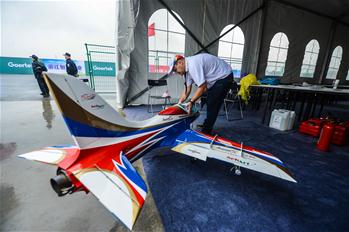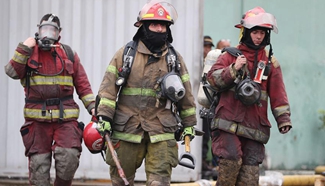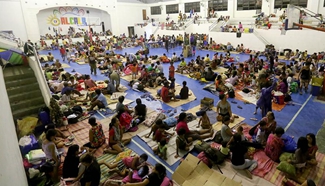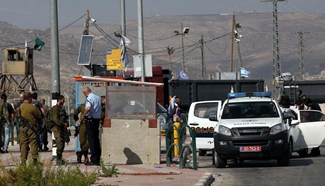by Xinhua writer Liu Chang
BEIJING, Oct. 20 (Xinhua) -- Few of those who have been closely watching the scandal-ridden U.S. presidential elections would disagree that the United States, a country that has often vaunted its political and economic model, is in big trouble.
As the two parties' candidates are heading into the third and final debate of this ongoing presidential campaign late Wednesday, they are expected to trade even more personal insults, instead of engaging in a serious discussion on real issues facing the world's sole superpower.
Across the United States, populism, racism and isolationism are rising, while gun violence seems to be an everyday occurrence. Meanwhile, the U.S. economic recovery is growing increasingly uneven and infrastructure in the country is crumbling and needs trillions of U.S. dollars to be fixed.
These are tough challenges that one administration after another has failed to solve.
Yet instead of addressing these issues, the two presidential hopefuls are busy attacking each other's personalities, leaving little room for discussions on badly-needed solutions.
Also, Democratic nominee Hillary Clinton has shown little political integrity and courage to tell voters what is right yet unpopular, while Republican candidate Donald Trump keeps making irresponsibly sensational remarks that have incited hate and fear domestically and stoked worries worldwide.
The fact that this election is going to put someone who is either dishonest or reckless in the White House has proved such a political system the Americans are taking pride in and try to transplant to the rest of the world has run into significant problems.
Now, the "shining city on a hill" can hardly ignite hope even for its own population. Worse yet, America's domestic problems have from time to time had an adverse effect on the rest of the world.
The 1990s saw a sweeping financial deregulation of Wall Street. Because of it, the sub-prime mortgage market was in later years flooded with toxic financial derivatives, which sucked the international community into an unprecedented global financial meltdown. Even to this day, the world still feels the pain of that crisis, and a stronger recovery remains largely elusive.
For decades, the foreign policy doctrines of every U.S. president have had one simple and clear goal and that was to maintain a world order that ensures Washington's supremacy around the world.
In exercising such policies, Washington has always conducted its quest to serve its own interests under the guise of promoting so-called freedom and democracy in countries and regions it either tries to control or manipulate. It has also spared no efforts to contain the rise of any party which it believes a potential challenger.
To invade Iraq, the Bush administration bluntly fabricated proofs of the existence of weapons of mass destruction in the country, yet what awaited the United States was no more than a bloody adventure that claimed hundreds of thousands of innocent lives and a prelude to the rise of the Islamic State militant group that has inspired waves of terrorist attacks in many parts of the world.
Because of Washington's continued intervention in the region, the following years only saw a Middle East that has been riddled with terrorism and sectarian violence, while the prospect of peace is vague at best despite strong international consensus to end the bloody wars in Syria and Yemen. What's more, this completely undermines the theory about the universal applicability of America's democratic system.
Worse, if Washington stays obsessed with sensationalism, fails to fix its deep-rooted social and economic problems, and continues to conduct its foreign policy in a peremptory manner, the next to be victimized may be itself.





